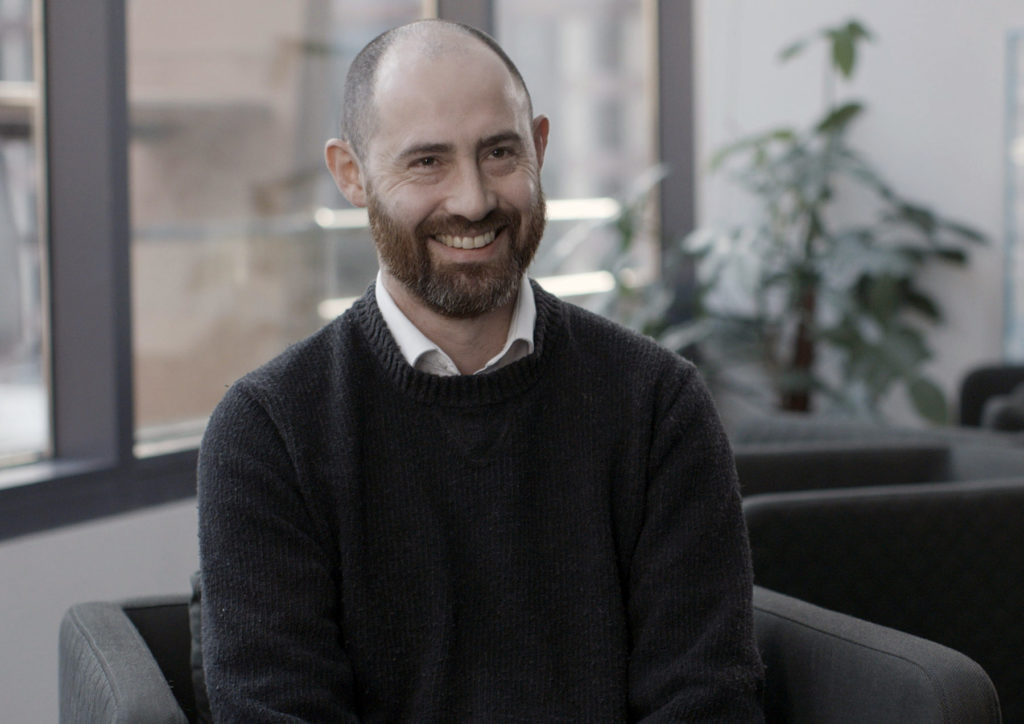
HotDoc CEO, Dr Ben Hurst, reflects on his early career as a doctor, and what recent developments in the startup industry mean for the future of healthcare technology.
One of the proudest moments of my life was when I stood beside my fellow medical students in the Wright Theatre at the University of Melbourne and pledged allegiance to the modern version of the Hippocratic Oath: our final passage into doctorhood.
As I heard my own voice read ennobling lines like ‘I will respect the hard-won scientific gains of those physicians in whose steps I walk, and gladly share such knowledge as is mine with those who are to follow,’ the sacrifice of six years of student life seemed suddenly worth it.
Those words followed me from my life as a doctor to my current role as CEO of HotDoc. From the company’s earliest days, the HotDoc team understood that two competing models of healthcare would evolve from digital disruption: a directory model that focused on patient convenience, and a practice-centric model that focused on continuity of care.
We believed that the the directory model would fragment provider relationships by encouraging patients to shop around, whereas our practice-centric model would emphasise lasting doctor/patient relationships and best support Australian doctors and patients alike
However, our path to profitability was not without its existential challenges. While we eschewed the directory model, we received various offers to partner with directory providers and advertise directly to patients. Although these opportunities opposed our company philosophy, the financial upside was hard to ignore.
We began asking ourselves why we were so attached to a business model that needlessly hindered our growth? In late 2015, this internal debate reached its zenith, around the time that the lesson of Theranos emerged in the news media.
The Story of Theranos
Aged 19, Elizabeth Holmes dropped out of Stanford to found Theranos, a company that planned to to reinvent the way we examine blood by making hundreds of tests available with ‘just a few drops from the prick of a finger’. Theranos lobbied Arizona state legislature to pass direct-to-consumer blood tests, which were vigorously promoted through their partnership with Walgreens.
Holmes’ magnetic charisma and Steve Jobs narrative (black turtleneck included) captured the hearts and purses of Silicon Valley’s elite, reaping Theranos $400 million in investment at soaring valuations as high as $9 billion.
But in October last year, the Wall Street Journal released a damning article, alleging that the ‘revolutionary pinprick technology’ was unreliable at best, and fraudulent at worst. Most of their tests were performed with diluted samples on traditional Siemens lab equipment while those using its Edison blood testing devices failed to meet the company’s own internal quality standards.
With corporate partnerships dissolved and reputation in freefall, Theranos was hit with a consumer fraud class action lawsuit alleging that its blood testing technology was inaccurate and patients were subject to “unnecessary or potentially harmful treatments” or may not have been notified about a treatable condition. Since the scandal erupted (and twelve years since the company was founded), Theranos is still yet to publish a single piece of data for peer review.
Theranos represents the worst of Silicon Valley’s hype-over-substance culture and fake-it-till-you-make-it economics. Easy though it is to condemn Elizabeth Holmes as an unethical liar who committed fraud with frank disregard for patient safety, the truth is more complex. She artfully cultivated a powerful narrative of disruption and assumed that the technology would catch up.
While multi-million-dollar investment, corporate partnerships and a big-name board (including two former US Secretaries of State) coalesced around her, the technology was the only thing not falling into place. By fully disclosing the limitations of Theranos’ technology, Holmes would have to disown her narrative as a visionary disruptor. However unforgivable her conduct, you can understand why she kept to her story.
Our Promise to the Healthcare Industry
Disingenuous tactics are unfortunate in any industry, but the consequences are far more serious in the health sector where patient outcomes are at stake.
Having followed the fallout of Theranos and understanding the forces that drive young companies to take shortcuts, HotDoc decided to develop a set of principles that will prevent us from ever descending the slippery slope of unethical corporate behaviour
We held a company-wide meeting to define our core values with reference to patient outcomes from the perspective of all stakeholders. Afterwards, these values were circulated internally and integrated into company policy.
The HotDoc promise represents our commitment to put patients before profit, and supports a healthcare model that we strongly believe in.



